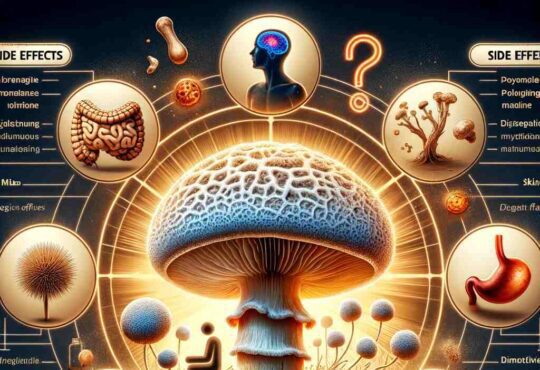The Hormone Health Chronicles: Revealing the Perfect Moment to Test for Hormone Imbalances
Introduction: Unveiling the Hidden Importance of Hormone Health
When it comes to our overall well-being, hormones play a critical and often overlooked role. These chemical messengers are responsible for regulating various bodily functions, from metabolism and growth to mood and reproduction. However, imbalances in hormone levels can have significant consequences on our health. That’s why early detection and treatment are crucial in maintaining optimal hormone health.


Understanding hormone health: Function and Regulation
To truly grasp the importance of hormone testing, it’s essential to understand what hormones are and how they function. Hormones are powerful substances produced by various organs and glands in our bodies. They act as messengers, carrying signals between different cells and regulating important processes.
The hormonal system is an intricate network, involving organs such as the hypothalamus, pituitary gland, thyroid, adrenal glands, and reproductive organs. These organs work together, forming feedback loops to ensure proper hormone regulation. This delicate balance allows hormones to influence numerous bodily processes, including growth, metabolism, reproduction, mood, and sleep.
Signs and Symptoms of Hormone Imbalances
Recognizing the signs and symptoms of hormone imbalances is crucial in determining the need for hormone testing. Imbalances can manifest in various physical and emotional ways, affecting both our bodies and minds.
Physical manifestations of hormone imbalances may include weight fluctuations and changes in metabolic rate. Additionally, skin issues and hair loss can be telltale signs of hormonal disruptions. Sleep disturbances and persistent fatigue are also common symptoms that may indicate imbalances.
On an emotional and cognitive level, hormone imbalances can lead to mood swings, feelings of depression, and even memory problems and difficulty concentrating. Anxiety and stress may also be intensified in the presence of hormonal irregularities.
Identifying the Perfect Timing for Hormone Testing
While hormone imbalances can occur at any age, certain life stages tend to be more susceptible. Hormone testing can be particularly helpful during these periods to detect and address any imbalances promptly.
During puberty, hormone fluctuations are expected as the body undergoes significant changes. Hormone changes during reproductive years, including menstruation and pregnancy, can also impact overall hormone balance. Lastly, menopause and perimenopause introduce additional hormonal shifts that may necessitate testing.
Apart from age-related considerations, various indications warrant hormone testing. If you experience persistent symptoms, unexplained health concerns, or have a family history of hormone-related conditions, get tested. Additionally, individuals preparing for fertility treatments can benefit from hormone testing to ensure optimal hormone levels.
Available Hormone Testing Methods
To accurately assess hormone levels, healthcare providers have several testing methods at their disposal. The gold standard for hormone analysis is blood tests. These tests measure hormone levels in the blood, providing valuable insights into overall hormone balance.
Saliva tests are another effective means of gathering hormone information. By analyzing saliva samples, healthcare professionals can assess unbound (free) hormone levels, which may provide additional clarity.
Urine tests offer a unique perspective by measuring hormone metabolites. These metabolites can offer insights into how hormones are being processed and eliminated by the body.
For specific hormones such as the thyroid hormone or cortisol, specialized testing methods are available to provide a more comprehensive understanding of these specific hormones.
Preparing for Hormone Testing
Before undergoing hormone testing, it is crucial to have open and thorough communication with your healthcare provider. Discussing your symptoms, concerns, and relevant medical history can help guide the testing process and ensure accurate results.
Timing considerations are also important for reliable hormone testing. Certain hormones have specific patterns throughout the day, and testing during the appropriate time can provide a more accurate representation of your hormone levels. Additionally, healthcare professionals may recommend dietary and lifestyle modifications leading up to the test to optimize results.
Selecting the Right Healthcare Provider for Hormone Testing
When it comes to hormone testing, choosing a qualified healthcare professional is paramount. Primary care physicians, endocrinologists, and hormone specialists are among the specialists who can provide expertise in this area.
It is essential to seek recommendations from trusted sources and conduct proper research on a healthcare provider’s credentials. Look for professionals who have experience in hormone testing and treatment, as well as positive patient reviews.
The Process of Hormone Testing
Once you’ve selected the right healthcare provider, scheduling an appointment to discuss your expectations is the next step in the hormone testing process. Understanding the different steps involved can help ensure a smooth experience.
Sample collection is the initial step, and depending on the specific hormones being tested, this may involve blood, saliva, or urine samples. After collection, the samples are sent to a laboratory for analysis, and the results are interpreted by your healthcare provider. It is crucial to ensure that the tests are reliable and accurate for informed decision-making.
Interpreting Hormone Test Results
Understanding the reference ranges for hormone test results is essential in determining whether any imbalances exist. Reference ranges are established based on the average values found in a healthy population. Deviations from these ranges indicate potential hormone imbalances.
Interpreting test results also involves recognizing patterns. Certain hormones may fluctuate throughout the day or exhibit distinct patterns over time, providing further insight into potential imbalances. Consulting with your healthcare provider or a hormone specialist can help in understanding the results and formulating an appropriate treatment plan.
Treatment Options for Hormone Imbalances
Treating hormone imbalances can involve various approaches tailored to individual needs and preferences. Lifestyle modifications and natural remedies are often the first line of defense. These interventions may include making dietary adjustments, incorporating stress reduction techniques, and engaging in regular exercise.
In cases where more significant interventions are required, hormone replacement therapy (HRT) may be recommended. HRT involves the use of synthetic or bioidentical hormones to restore hormonal balance. Alternative therapies and complementary approaches, such as herbal remedies or acupuncture, may also be explored in conjunction with traditional treatments.
Regardless of the chosen treatment approach, regular monitoring and adjustments are necessary to ensure optimal hormone balance is achieved and maintained.


Potential Risks and Side Effects of Hormone Treatments
While hormone treatments can be highly effective, it is important to be aware of potential risks and side effects. Hormone replacement therapy (HRT) carries certain risks, including an increased likelihood of blood clots, stroke, and breast cancer. It is crucial to have an open and honest discussion with your healthcare provider regarding the risks associated with any recommended hormone treatment.
Additionally, hormonal birth control methods, while effective in preventing pregnancy, can also come with potential drawbacks such as mood changes, weight fluctuations, and an increased risk of blood clots.
Safety precautions and long-term considerations should always be taken into account when exploring hormone treatments. Regular check-ups and ongoing communication with your healthcare provider can help mitigate potential risks.
Exploring Hormone-Disrupting Factors in the Environment
Our hormone health is not solely influenced by our bodies but can also be affected by external factors. Endocrine-disrupting chemicals (EDCs) found in various everyday products and environmental sources can interfere with hormonal regulation. Understanding the impact of these EDCs and minimizing exposure is crucial for maintaining optimal hormone balance.
Common sources of EDCs include personal care products, plastics, pesticides, and certain medications. Minimizing exposure to these substances, such as choosing natural and organic products, can help reduce the risk of hormone disruption. Being aware of the link between hormone health and the environment empowers individuals to make informed choices for their well-being.


Key Lifestyle Factors for Maintaining Hormone Balance
Apart from medical interventions, several key lifestyle factors contribute to maintaining hormone balance. Optimal nutrition plays a pivotal role, ensuring an adequate intake of macro and micronutrients essential for hormonal regulation. Additionally, supporting gut health through proper digestion and a balanced microbiome can positively impact hormone balance.
Regular exercise and physical activity are also vital in maintaining hormone health equilibrium. Engaging in activities that reduce stress levels, such as yoga or meditation, can further contribute to overall hormonal well-being.
Hormone Health by Age: Addressing Unique Challenges
Hormonal changes present unique challenges at different stages of life. During adolescence, hormonal fluctuations are expected as the body goes through puberty. Understanding and navigating these changes can help teenagers and their caregivers manage the physical and emotional effects.
Pregnancy and the postpartum period also bring about significant hormonal shifts. Being aware of how hormone levels change during this time can assist in addressing any imbalances and ensuring the well-being of both mother and baby.
Navigating menopause and age-related hormone health changes is another crucial aspect of hormone health. Understanding the physical and emotional challenges that come with these changes empowers individuals to seek appropriate testing and treatment.
Frequently Asked Questions about hormone health
To address common concerns, here are answers to frequently asked questions about hormone testing and imbalances:
How often should hormone testing be done?
Hormone testing frequency depends on individual circumstances and needs. Consult with your healthcare provider to determine an appropriate testing schedule.
Can hormone imbalances be treated naturally?
Lifestyle modifications, including dietary changes, stress reduction techniques, and regular exercise, can contribute to balancing hormones naturally. However, the severity of the imbalance may require additional medical interventions.
What role does stress play in hormone health?
Chronic stress can disrupt hormone balance, leading to imbalances. Managing stress through techniques like meditation and exercise is essential for maintaining optimal hormone health.
Are there differences between male and female hormone testing?
While certain hormones are more prevalent in either all genders, hormone testing methods are generally similar for individuals. However, the specific hormones being tested may differ based on individual needs.
How long does it take to achieve hormone balance?
Achieving hormone balance varies from person to person and depends on the severity of the imbalance, treatment methods employed, and individual response. It is a process that requires regular monitoring and adjustments.
Summary: Empowering Yourself through Hormone Health Knowledge
Understanding the significance of hormone balance and the importance of early detection and treatment empowers individuals to take charge of their hormone health. By recognizing the signs and symptoms of imbalances, and seeking appropriate testing and treatment, individuals can aim to achieve optimal well-being. Continuous self-care, in conjunction with regular monitoring, solidifies one’s commitment to maintaining hormone balance and overall health.






